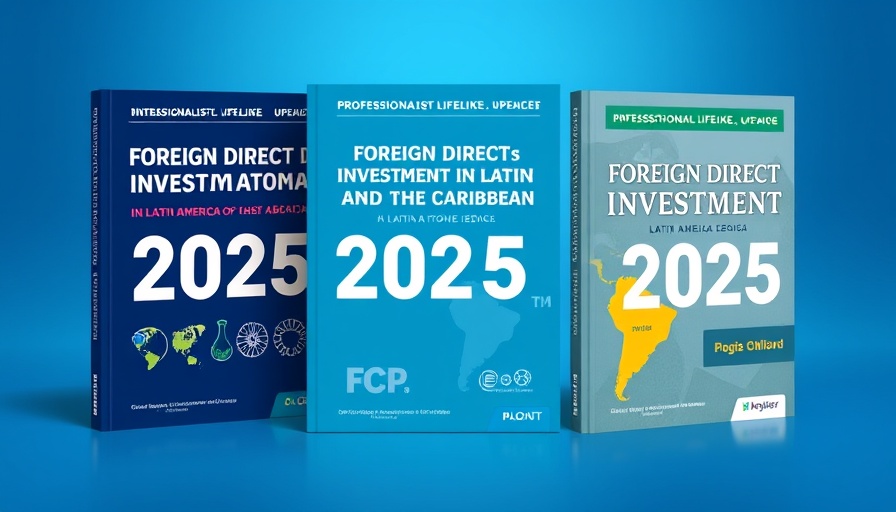
The Rise of Foreign Direct Investment in Latin America and the Caribbean
In 2024, Foreign Direct Investment (FDI) in Latin America and the Caribbean achieved a milestone, totaling $188.962 billion, representing a 7.1% increase over the previous year. This surge, reported by the Economic Commission for Latin America and the Caribbean (ECLAC), signals a growing confidence among investors despite prevailing economic challenges. This article explores the factors contributing to this growth and its implications for the region's future.
Historical Context of FDI in the Region
To understand the significance of a 7.1% rise in FDI, it’s essential to look back at historical trends. During the booming 2010s, FDI represented an average of 16.8% of the region’s gross fixed capital formation. By contrast, 2024's share of 13.7% suggests an evolving investment landscape heavily influenced by both global and local dynamics. The historical context shows that while the uptick is promising, it remains below the peaks experienced in previous years.
Drivers Behind the Investment Surge
The main catalyst for this increase is the reinvestment of earnings by transnational firms already operating in the region. Notably, Brazil saw a whopping 13.8% increase in FDI, while Mexico's figures soared by 47.9%. This push from established firms contrasts sharply with the stagnation of capital from new companies, indicating a preference for expanding existing ventures rather than initiating new ones.
Sectoral Insights: Who’s Getting the Biggest Slice?
FDI inflows in 2024 were marked by an increase in the manufacturing sector, contributing 43.6% of the total FDI. Conversely, the services sector experienced a decline, now accounting for 40.4%. The natural resources sector, traditionally significant in the region, only comprised 16% of the overall FDI. This shift in sectoral investments reflects the changing priorities and strategies of global investors against the backdrop of evolving technology and energy demands.
The Influence of Geopolitical Factors
The United States continues to be the leading investor in the region, accounting for 38% of the total FDI. Meanwhile, European investments saw a decline, now representing 15%, the lowest since 2012. The decreasing share from the EU could be attributed to economic uncertainties, including Brexit ramifications and shifts in policy. Interestingly, Chinese investments made up a mere 2% of inflows. Despite China's significant global economic footprint, its presence in Latin America remains limited, suggesting missed opportunities for greater investment collaboration.
Looking Ahead: What Does the Future Hold?
As Latin America and the Caribbean navigate through multifaceted challenges, the rising FDI offers a glimpse of hope for economic recovery and development. However, stakeholders, including policymakers and business leaders, must address the stagnation of new investments and seek to create an environment that is attractive to foreign firms looking to establish new operations.
Taking Action: What Can We Do?
For readers and stakeholders in the region, staying informed about these investment trends may provide vital insights into their economic futures. Encouraging discussions around investment policies could lead to innovative strategies to boost FDI further. Engaging in community and governmental initiatives focused on enhancing the business environment can also have positive ripple effects.
In summary, while the increase in FDI is a positive sign for Latin America and the Caribbean, it also poses new challenges and opportunities that require strategic approaches to ensure sustainable growth in the years to come.
 Add Row
Add Row  Add
Add 




Write A Comment